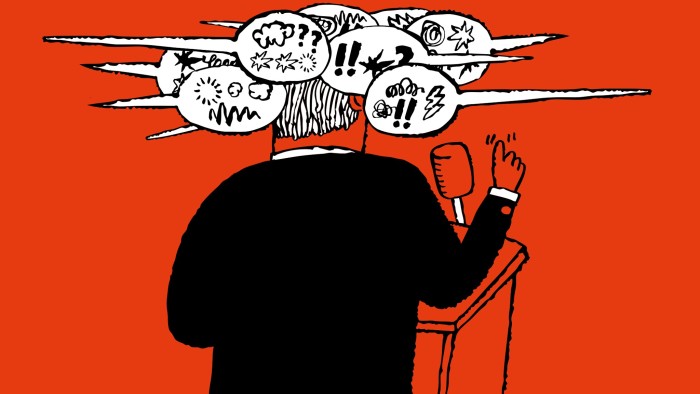Unlock the Editor’s Digest for free
Roula Khalaf, Editor of the FT, selects her favourite stories in this weekly newsletter.
A chancellor in tears. A prime minister talking openly about the great pressures of his job. It is hard to think of another time when two top leaders of a G7 country put their personal frailties on display in the way the UK’s Rachel Reeves and Keir Starmer did this week.
Reeves did so unwillingly, in the painful glare of the House of Commons, where she struggled to contain her all too visible distress over something that, at the time of writing, remains a mystery.
Starmer was more controlled, telling weekend newspaper interviewers his recent bouts of political havoc came as he was facing the firebombing of his London family home, Iran missile strikes and a G7 meeting in Canada within days of a Nato summit in The Hague.
Both cases say much about our complicated and often contradictory responses to a leader who shows vulnerability.
It has long been conventional wisdom that a boss who is prepared to reveal fear, uncertainty or some other form of uselessness is in luck.
It’s thought they will be more trusted and respected, especially by younger staff who are said to yearn for “authenticity”, and are therefore more valuable to an organisation.
It helps that some of the world’s best known corporate leaders have endorsed this idea. “I think one of the perhaps most undervalued characteristics of leadership is vulnerability and asking for help,” former Starbucks boss, Howard Schultz, told an interviewer in 2017.
When former Expedia chief executive, Dara Khosrowshahi, left the travel group to run Uber, he was lauded for telling Expedia staff he was “scared” about making the move.
There is indeed research suggesting it pays to impart inner wobbles. Yet if it really were obvious, why does the evidence suggest relatively few leaders are willing to own up to any form of weakness?
When author Jacob Morgan surveyed 14,000 employees around the world for his 2023 book, Leading With Vulnerability, he asked how many of their bosses showed the qualities of a vulnerable leader.
Only 16 per cent said their leaders had done anything like asking for help, admitting to mucking up or revealing genuine feelings.
I suspect this is because, as with so much else in working life, context is all.
There are times when a leader who reveals any form of feebleness will be penalised, as Starmer has been this week.
As a BBC interviewer asked one of the prime minister’s allies on Wednesday, “Don’t you think he’s coming across as terribly weak?”
Starmer’s problem was timing.
Signs of vulnerability can look like damage control, or an excuse, if they come after a leader is already in trouble rather than before.
Chief executives who ignore this lesson risk being less appealing to investors, according to a recent paper by academics in the US.
They did a series of experiments to see how people reacted after reading an interview with a fictional tech chief executive before an earnings forecast.
In some interviews, the CEO said that although he was good at public speaking, “When I make a speech, I frequently get nervous — my mouth gets dry, and my hands get sweaty.”
In others, he said: “I’m good at public speaking, and when I make a speech I’m never nervous.”
It turned out that if the more vulnerable version of the CEO issued good financial news, people were more inclined to find the forecast credible and rate the company an attractive investment.
If he had bad news, it went down badly. But the response was softened if the CEO appeared more vulnerable.
Crucially, this softer reaction only came when the boss showed signs of vulnerability before the bad news, not afterwards.
This makes sense, and I suspect it explains at least part of the reaction to Starmer this week.
Things are more complicated when it comes to Reeves, and not just because there was an actual market sell-off after Starmer initially failed to back his tearful chancellor, prompting investor fears she would be sacked.
Her wrenching display of distress also came after the bad news of a party rebellion over reforms she had strongly backed. But no one witnessing the harrowing images of her anguish could imagine they were anything but genuine. We live in an age when emotional honesty is rare and valued, even if, as Reeves has shown, it can also be jolting to watch.
Read the full article here




